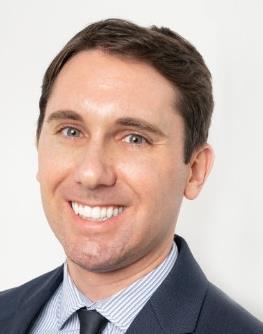By Marshall Geck in Washington DC (@MarshallGeck), Manager, Climate Action 100+

Last week investors, business leaders, NGO members, and other sustainability professionals convened in San Francisco for the Ceres Conference 2019. I had the opportunity to attend this exciting gathering and noticed several recurring messages throughout the discussions. I’ve summarized these below.
Message #1: Urgency abounds. The time to act was yesterday
This message was unmistakable. During nearly every session I attended, there was a strong sense that although progress was being made, investors and the business community writ large were not preparing themselves quickly enough to adequately deal with emerging global mega risks like climate change, water scarcity, and technological disruption. To paraphrase Isaac Khurgel from Wells Fargo during a session on the low-carbon economic transition, “How are we doing? Quite poorly. The starting point is mostly misalignment. And to be honest, we are out of time.”
The message was motivated by new research like the IPCC’s special report on 1.5° C, which found that the world has just a little more than a decade to make drastic cuts to global emissions in order to avoid many damaging impacts of climate change. It was also motivated by speakers like Mina Guli, who documented the global water crisis with photographs and interviews while running marathons all over the world.
Message #2: Business as usual will not fly
Paired with the sense of urgency was a persistent message that current ways of doing business won’t cut it anymore. Many expressed a need to break through the inertia in our economic system, challenge short-termism, and change the implicit view of too many companies that someone else will deal with society’s problems.
In some cases, this message stemmed from a recognition that the mega risks of the 21st century are unavoidable. To paraphrase Anne Simpson from CalPERs during a session on Climate Action 100+: “There is nowhere for a fund of our size to hide from climate change risks. As owners of companies, we need to pick up the responsibility of addressing these issues.”
At other times, the message had more of a moral arc. I am not much of a tweeter, but I was inspired to tweet a powerful declaration by Ceres’ CEO, Mindy Lubber, while she was discussing the business case for climate action during the opening of the conference: “Some will tell you what we are proposing is too radical, but I think stealing our children’s future is even more radical.”
Message #3: Change is hard, but don’t let the perfect be the enemy of progress
While there was broad acceptance of the need to change, there was also an acknowledgement that change won’t necessarily be easy.
From setting science-based emission reduction targets to reporting against the Task Force on Climate-related Financial Disclosures (TCFD), it was clear that many were grappling with new territory, and there was still much learning to do. Many investors recognized this openly, asserting that simply seeing a company taking the first steps and wrapping its head around the relevant issues was currently more important to them than perfection.
And yet, there was also widespread agreement with the following point: just because such practices were new and sometimes difficult does not give anyone a free pass. To paraphrase Isaac Khurgel from Wells Fargo again: “TCFD is tough, but just because it’s difficult doesn’t absolve me of my responsibility to do the work. This is the framework that’s being used. This is where it’s going. If you want to be the leader, you do it. Don’t worry about being perfect, it’s a journey, and you will learn a lot along the way.”
TCFD is tough, but just because it’s difficult doesn’t absolve me of my responsibility to do the work. This is the framework that’s being used. This is where it’s going. If you want to be the leader, you do it
Isaac Khurgel, Wells Fargo
Message #4: Start talking about crucial issues
Yet another prominent message throughout the conference was how important it is that sustainability be discussed by investors, companies, and other stakeholders.
Part of this appeared to stem from the simple fact that if investors and businesses don’t talk about sustainability, the relevant risks and opportunities were unlikely to be managed. As Bob Fisher from Gap, Inc. forcefully asserted during a session on protecting global water resources, if investors don’t ask questions about the critical issues facing our world, if they only care about the short term, so will corporates…investors need to push companies to make goals, and if they don’t, they should sell their stock!
A related discussion revolved around the need for communication between investors and businesses to be effective and focused. Companies stated that they wanted investors to be clear about the type of sustainability information they needed, where they wanted to see it, and how they planned to use it. Investors, meanwhile, emphasized that they wanted companies to showcase where their relevant risks are, discuss where there could be added value by addressing them, and openly disclose their assumptions and methodologies.
One point it seemed that everyone could agree on? Such discussions will be more effective if they occur not just with investor relations and ESG teams, but also at the board level.
Message #5: Be bold

A final takeaway from the conference for me was the resounding call for leadership. Panelists and speakers alike reminded the attendees that part of being investors and business leaders is taking risks that others don’t want to take. This sentiment was especially on display during a plenary session featuring clips from a new documentary about the solar impulse — the first plane to fly completely around the world using solar power alone. I can think of few achievements that better demonstrate the power of taking big risks, pushing technology to the limits, and moving forward in the face of difficulty and doubt.
In addition, there was a clear warning that now is no time for half-hearted measures. For example, one speaker remarked that there is little use in a company setting a science-based emission reduction target if it won’t also commit the resources needed to meet it.
Concluding thought

This year’s Ceres Conference provided fresh evidence to me that leading businesses and investors are confronting the challenges of the 21st century and working towards a more-sustainable global economy. While this gives me hope, I am also mindful of a quote by Greta Thunberg, the young Swedish schoolgirl who was recently nominated for the Nobel Peace Prize for her activism on climate change and whose TED Talk clips were played during the beginning and end of the conference: “When we start to act hope is everywhere. So instead of looking for hope — look for action. Then the hope will come”.
This blog is written by PRI staff members and guest contributors. Our goal is to contribute to the broader debate around topical issues and to help showcase some of our research and other work that we undertake in support of our signatories.
Please note that although you can expect to find some posts here that broadly accord with the PRI’s official views, the blog authors write in their individual capacity and there is no “house view”. Nor do the views and opinions expressed on this blog constitute financial or other professional advice.
If you have any questions, please contact us at [email protected].












